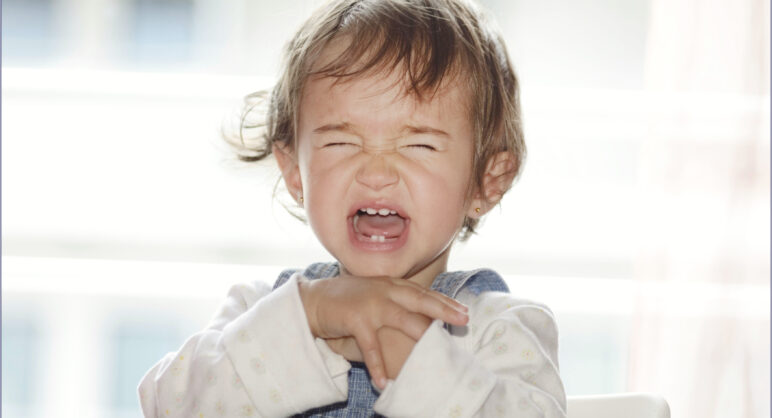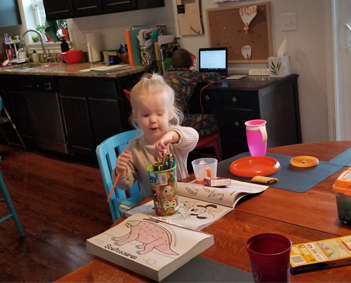
Child Behavioral Problems: A Parenting Guide for Toddlers
Parenting is not an easy task especially when raising tots with behavioral problems. In addition, parents face difficulties determining the cause of child behavioral problems. According to data published by the Ann & Robert H. Lurie Children’s Hospital of Chicago, the rate of tots who develop behavioral issues ranges from 7-25%. Here are some parenting tips to help you deal with child behavioral problems:
Overview of Child Behavioral Problems
For parents, a good grasp of behavioral problems in preschoolers is very important. With this in mind, Julie A. Rinaldi, Ph.D., staff psychologist, child and adolescent psychiatrist at Ann & Robert H. Laurie Children’s Hospital of Chicago and assistant professor of psychiatry and behavioral sciences at Northwestern University Feinberg School of Medicine says all children experience behavioral problems at some point.
For 2-year-olds, common behavioral issues include aggression, anger tantrums, adult rule or request defiance, annoying others deliberately, fussiness, crying, and annoying others. However, the good news is most tots who exhibit such behaviors do so occasionally. The bad news is a publication by researchers from the University of Pittsburgh states that studies have shown that 50-60% of two-year-olds who exhibit such behaviors continue to do so up to school going age.
Risk Factors

There are various reasons why toddlers exhibit disruptive behavior. First, some tend to be fussy, irritable, and temperamental right from birth making them difficult to manage. Second, a child may have behavioral. These issues can be tied to autism spectrum disorders, learning disabilities, attention deficit hyperactivity disorder (ADHD), or learning disorders. A third risk factor is growing up in a highly stressful environment. A good example of this is children who grow up surrounded by poverty, drug abuse or physical violence. Fourthly, researchers from the University of Pittsburgh reckon children can become behaviorally difficult as a way of reacting to environmental changes such as moving to a new house or city. Fifthly, the need for preschoolers to assert their independence. Finally, faulty parenting can also cause young kids to develop disruptive behaviors.
Tips for Managing Child Behavioral Problems
1. Exploiting play to build positive relationship with your kid
An effective way of curbing and managing behavioral issues is by developing a positive child-parent relationship via play. This approach, according to Dr. Rinaldi, can lead to cessation of disruptive behaviors because pre-kindergarteners learn that they do not have to ‘act out’ to attract the attention of their parents or others.
For this reason, it is advisable to play with your kid several times every week. Such interaction makes kids feel loved, bolsters their self-esteem, and makes them feel important. At the same time, parents can use playtime to model essential social skills such as sharing, cooperation, and asking. This is in addition to helping kids hone their problem-solving skills, develop and use their imagination, and develop their vocabulary.
In spite of these positives, Dr. Rinaldi states some parents barely have time to play and interact with their kids due to tight/demanding work schedules and resentment/anger related to their child’s behavior. Rinaldi encourages such parents to try to overcome these obstacles and become more involved in their toddler’s play activities. Studies have shown that kids who spend regular playtime with their parents tend to be more creative, have fewer behavioral problems, and have higher self-confidence, according to Rinaldi.
2. Do not encourage whining
Although it is natural for children to whine, encouraging your kid to do so is counterproductive on the behavioral issue front. If this is the case at home, the author of “The Big Book of Parenting Solutions” Michele Borba, EdD, recommends never give in to whining because doing so only encourages your kid to repeat the same attention-getting behavior in the future. Unless whining turns aggressive or disruptive to others, Borba recommends ignoring your child’s attempts to have his/her way. He/she will soon figure out that whining does not work.
3. Consistency
Three-year-olds are always trying to figure out the world around them. As such, they will become confused, and probably engage in disruptive behavior if your, daily routine lacks consistency. A good example is letting your preschooler play with a certain object and then objecting in the future. He/she will not understand why you allowed playing with the same object in the past and have now changed your mind.
To avoid upsetting your child and triggering behavioral problems, adopt consistency across the board. This includes consistency when feeding, bathing, playing with your kid, and putting the child to sleep. According to Tanya Remer Altmann, one of the top authors in this field,” behavioral aberration occasionally is acceptable if your parenting routine is consistent 90% of the time.”
Conclusion
If your 3-year-old has developed behaviors such as throwing temper tantrums, screaming, and defying parental orders, intervention is necessary to avoid progressive growth of the same problems up to school-going age. You can nip child behavioral problems early by developing a positive child-parent relationship via play, discouraging whining, and adopting consistent parenting routines. For a step-by-step situational guide to applying these tips to your life, check out our book, Change Your Perspective, Improve Your Parenting.





